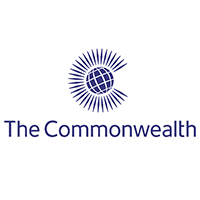The Global Commodities Forum is a major multi-stakeholder meeting to discuss pragmatic solutions to perennial problems of the commodity economy.
The theme of the 2021 Forum is “Strengthening Resilience in Commodity Dependent Countries”. It will connect policymakers with practitioners to address the current challenges and future opportunities for commodity-dependent economies.
The fourth session will discuss how countries well-endowed in the commodities required by the surge in renewable energy technologies could benefit from energy transition.
Minerals are expected to play an increasingly crucial role in facilitating the implementation of energy transition strategies around the world. However, demand for specific minerals is also expected to rise at rates never seen before exposing the sector of renewable energies to potentially disruptive market tensions.
Solar photovoltaic (PV) plants, wind farms and electric vehicles (EVs) generally require more minerals to build than their fossil fuel-based counterparts. Energy policies in place or announced could lead to a doubling of overall mineral requirements for clean energy technologies by 2040.
A concerted effort to reach the goals of the Paris Agreement would imply a quadrupling of mineral requirements for clean energy technologies by 2040. Recycling could relieve the pressure on primary supply.
For many energy-transition metals-recycling practices still need further development and optimization. Addressing and minimizing the environmental and social impacts of mineral developments will also be essential. That includes the emissions associated with mining and processing, risks arising from inadequate waste and water management, and impacts from inadequate worker conditions.
Ensuring that mineral wealth brings real gains to communities represents a broad and multi-faceted challenge that should be included in any supply development and capacity deployment strategies. Several questions need some specific attention.
Among them are:
- How do countries well-endowed in the commodities required by the surge in renewable energy technologies create new domestic industries and provide value-added opportunities for their citizens?
- Has the demand for land for energy production - solar, wind, biomass, biodiesel - created new conflicts with the need for increased food production? How do we strike the right balance?
- Which kind of regulatory framework could help identifying, assessing and mitigating risks, increasing traceability and transparency in minerals extractive activities?
- What are the opportunities and challenges for companies that produce minerals clean energy transitions offer?
- What are the emerging technologies that could facilitate and possibly speed the transition towards cleaner energies?
Registration and attendance
Registration and attendance are free of charge, but registration through UNCTAD website is mandatory for all participants, including invited government representatives, experts, and speakers.
We recommend each participant to log in to the event 20 minutes in advance to verify the quality and stability of their connection.
Our Partners
|
|
|
|
|
|
|
|
Pascal Laffont is the International Energy Agency (IEA) Chief Legal Counsel and Secretary to the IEA Board of Governors.
His previous assignments were in Doha for the Government of Qatar, in Brussels for the Energy Charter and as a solicitor with Pinsent Masons LLP, in London and Hong Kong.
Nicky Black is a Director at the International Council on Mining and Metals (ICMM), an international organization that brings together 28 mining and metals companies and over 35 national and commodity mining associations to strengthen environmental and social performance and enhance mining’s contribution to society.
Prior to joining ICMM, Dr. Black was Group Head of Social Performance at De Beers, the diamond company. She serves on several boards and advisory panels, including the Institute for Human Rights and Business (IHRB), an international think tank.
In addition to a PhD in strategic management (responsible business), she holds degrees from the Universities of McGill and Oxford.
An astute economist and entrepreneur, Michael advises on the finances and strategic direction of Norge Mining. He’s worked for Citibank Zurich, and has held a prestigious array of senior positions at multinational financial institutions in New York and Frankfurt.
He’s previously been mandated by various governments, finance ministries and state banks to help settle sovereign debts. Over the years, Michael has advised on structure financing for companies in the natural resources, commodities and mining sectors in Russia, the Middle East and Mongolia.










